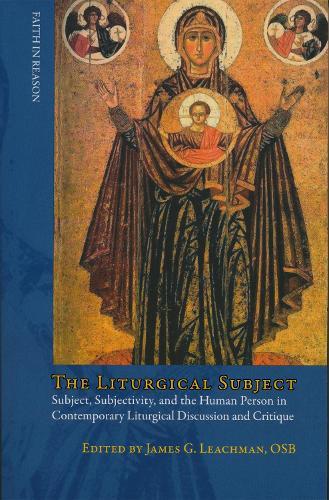Overview
The Liturgical Subject brings together in one volume a wide and sometimes divergent range of understandings of the liturgy. Written primarily by Roman Catholics, with one important ecumenical contribution, the publication of these essays at this moment is particularly apt. They reflect the widespread reassessment of various aspects of especially the post-Conciliar period of liturgical reform. At the same time the collection indicates how liturgical study is called to account by, and is itself able to question, the philosophical aspects of its work. This is an area of enquiry as yet in its infancy, whose contours are nevertheless already discernible in the papers gathered here. This volume is a landmark for research of this kind, pointing toward further ecumenical dialogue and contributing to more fundamental studies of liturgy.
Full Product Details
Author: James G. Leachman
Publisher: University of Notre Dame Press
Imprint: University of Notre Dame Press
Dimensions:
Width: 15.60cm
, Height: 1.50cm
, Length: 23.40cm
Weight: 0.408kg
ISBN: 9780268034108
ISBN 10: 0268034109
Pages: 277
Publication Date: 15 August 2009
Audience:
Professional and scholarly
,
Professional & Vocational
Format: Paperback
Publisher's Status: Active
Availability: Awaiting stock

The supplier is currently out of stock of this item. It will be ordered for you and placed on backorder. Once it does come back in stock, we will ship it out for you.
Reviews
This collection of essays makes a significant contribution to the field of liturgical studies. Many are original in the best sense that theological work can be: grounded in the authentic tradition, perceptive, imaginative and capable of giving readers new insights into, and a fresh appreciation of, timeless truths. Taken together they will attract readers from a variety of disciplines, in the first place because worship is an essential aspect of every Christian life, and in the second because the essays are written from, or informed by, the perspectives of a range of related disciplines: doctrinal and spiritual theology, history, philosophy, and liturgical studies. --Lauren Pristas, Caldwell College The essays in this book grapple with the basic question: 'Who celebrates the liturgy?' By delving into the complex interrelationship between the divine initiative (liturgy as opus Trinitatis) and the human response (liturgy as opus hominis), between the action of Christ and the Church and the participation of the individual Christian, the authors-coming from a wide range of theological disciplines-make a stimulating contribution to contemporary liturgical theology. --Cassian Folsom, O.S.B., Pontifico Instituto Liturgico, Rome
The essays in this book grapple with the basic question: 'Who celebrates the liturgy?' By delving into the complex interrelationship between the divine initiative (liturgy as opus Trinitatis) and the human response (liturgy as opus hominis), between the action of Christ and the Church and the participation of the individual Christian, the authors-coming from a wide range of theological disciplines-make a stimulating contribution to contemporary liturgical theology. --Cassian Folsom, O.S.B., Pontifico Instituto Liturgico, Rome This collection of essays makes a significant contribution to the field of liturgical studies. Many are original in the best sense that theological work can be: grounded in the authentic tradition, perceptive, imaginative and capable of giving readers new insights into, and a fresh appreciation of, timeless truths. Taken together they will attract readers from a variety of disciplines, in the first place because worship is an essential aspect of every Christian life, and in the second because the essays are written from, or informed by, the perspectives of a range of related disciplines: doctrinal and spiritual theology, history, philosophy, and liturgical studies. --Lauren Pristas, Caldwell College
Author Information
James G. Leachman, OSB, is professor of liturgical spirituality and professor of liturgy of the Churches of the Reformation at the Pontifical Liturgical Institute, Rome.



